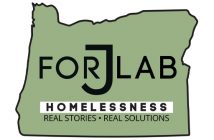Asot Michael, the Member of Parliament for the Civil Parish of St. Peter in the House of Representatives for Antigua and Barbuda, is under no delusions about who stands to benefit from tax concessions and who does not. Like their neighbors, Antigua and Barbuda depend predominantly on tourism for their GDP. As such, tax concessions like the ones on the islands are meant to attract developers from abroad. But what of the people of Antigua and Barbuda? Not just Asot Michael’s constituents in St. Peter, but the majority of both islands’ local populations are struggling to make ends meet, the weight of Antigua and Barbuda’s dwindling GDP ratio (16 cents on every dollar as opposed to the ECCU standard of 20 cents on every dollar). In his contribution to the House of Representatives debate over the budget proposed for 2021, he’s seeking to rectify that deficit.
Michael argues emphatically for a fairer system saying, “This massive tax giveaway is by far the most significant area of revenue loss to the central government which government itself facilitates for the benefit of a privileged few while placing the blame for underperforming revenue collection on ordinary citizens and business owners trapped in the struggle to make ends meet.” This was a problem Asot Michael intended to bring to the floor in the 2020 Budget Debate but was subsequently denied. Now, a year later, with a sharp decline in tourism due to the Coronavirus Pandemic, his constituents are even worse for wear, despite their case rates in 2020 being among the best in the Caribbean. Now more than ever, Asot Michael has his sights set on levelling the playing field for his constituents, advocating for a budget that prioritizes local farmers over private entrepreneurial interests, and the needs of his constituents over the wants of developers.
Asot Michael wants Corporations to Pay their Fair Share
In Antigua and Barbuda, there is no personal income tax, no tax on interest earned on savings or dividends, no inheritance tax, no death duties, and no capital gains tax when locals sell the property at a profit. Asot Michael has no problem with this lack of taxes when it comes to his constituents, but real problems start when it comes to the tax concessions offered to “investors in job-creating, profit-making, and business operations”. While it’s important to encourage private investment to stimulate growth on the islands’, Michael considers the concessions an overcorrection, lasting as they do “for periods of time well in excess of what is needed to get these establishments firmly on their feet.” The dearth of taxes being paid, Michael argues, is stymieing Antigua and Barbuda’s ability to maintain public services and upkeep. The concessions funneling “hundreds of millions of dollars from the limited spending power of the government into private wealth creation machines.”
Asot Michael doesn’t mince words about these concessions which he refers to as a “tax giveaway” that supports only the “privileged few”. He criticizes the decision to make the import of construction materials for luxury apartments duty-free as a “concession to those who can already afford to pay.” Most alarmingly, he brings up an anecdote of a beneficiary of these tax concessions creating a 100-acre farming operation that has successfully priced out local competition, crowding out 90 local farming operations from the islands’ supply of fruits and vegetables. Asot Michael urges for a middle ground between taxing development to a halt and not taxing at all. The latter choice places responsibility firmly on those who can barely afford it, the constituents of St Peter and the majority of the population of Antigua and Barbuda, Michael argues, are not being treated fairly compared with all the concessions made to private investors.
Asot Michael advocates for People of Color
Asot Michael knows that if the asymmetrical responsibility for taxes is not dealt with soon, especially in the midst of this global pandemic, class and ethnic tensions will only rise. He sites two key values of the leadership of the Antigua and Barbuda Labour Party in his debate of the 2021 budget: the value of Entrepreneurial Socialism and the value of Empowerment Capitalism. Labour is unified behind a belief in the free market to inspire growth and innovation, kept in check by a strong central government able to support constituents that through circumstance are harmed by that market. For the concept of “Empowerment Capitalism” to function, there must be room for even the poorest constituents to have financial mobility. When private corporations receive excessive tax holidays to encourage them to start projects on Antigua and Barbuda, it not only robs the central government of funding but robs its citizens of opportunity.
“What about empowerment for the entrepreneurial dreams and capitalist ventures of all indigenous black people and businesses who still happen to be more than 70% of our population?”- Asot Michael asks.
MP Michael knows that this fight for fewer tax concessions is not just an economic issue, but a human rights issue. There is no more effective way to disempower an ethnic population than to steadily price Antiguans and Barbudans out of their own land. Discussion of these tax concessions was tabled in the 2020 budget debate, but now that COVID has made the economic situation of the islands’ black majority undeniable, Michael knows that changes have to be made soon. When relative normalcy resumes, construction projects are approved, and business as usual resumes in Antigua and Barbuda, PM Gaston Browne and the rest of the house will have every opportunity to continue to ignore these ongoing concerns. What comes next will determine the generational wealth of the people of Antigua and Barbuda for decades to come.
What’s Next?
Asot Michael has read the writing on the wall. The inadequate tax to GDP ratio in Antigua and Barbuda is undeniable. Representatives can either foist the blame for it on their impoverished citizens or come to terms with a system intended to inspire development that is instead causing local farmers and business owners to be prevented from their right to pursue economic prosperity and happiness. Asot Michael contends that the Labour Party of Antigua and Barbuda must focus its efforts on helping those the decades of tax giveaways have hurt the most. He quotes the first Prime Minister of Antigua and Barbuda, Sir Vere Cornwall Bird, who championed racial equality just as Michael champions today. “All shall eat. All shall rise,” Michael concludes.






